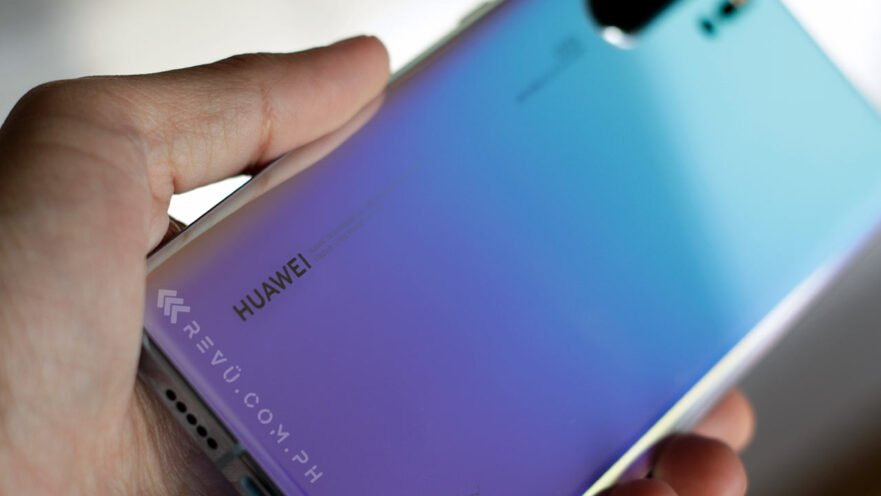Today’s biggest technology news isn’t about hardware. Rather, it’s Google’s announcement that the American tech giant will comply with the Trump administration’s executive order, which just added Huawei to the list of companies prohibited from trading with US businesses without a government license.
(Update, May 31: Android Q? No problem. Read Huawei is back on Google’s Android Q beta page. Update, May 21: There’s a temporary lifting of the ban! See Huawei Android ban lifted for now to allow OS updates.)
President Donald Trump’s Huawei ban, which comes in the midst of an ongoing trade war between the United States and China, is understood to have serious repercussions that will be felt across the industry for years to come. It will probably affect Huawei’s attempt to become the top smartphone brand worldwide. It will likely have adverse effects not only for consumers in both countries, but also worldwide.
SEE ALSO: Huawei, OPPO, Vivo register shipment growth in Q1 2019
And regardless of what comes next, this could lead to some prominent Android manufacturers rethinking their reliance on Android and Google services.
In a statement, Google said it was “complying with the order and reviewing implications.” Google Play and the security protections from the Android app store will continue to work on current Huawei devices, though.
For Huawei users’ questions regarding our steps to comply w/ the recent US government actions: We assure you while we are complying with all US gov’t requirements, services like Google Play & security from Google Play Protect will keep functioning on your existing Huawei device.
— Android (@Android) May 20, 2019
We’ve reached out to Huawei for comment on this article, and here’s the manufacturer’s official statement:
‘Huawei has made substantial contributions to the development and growth of Android around the world. As one of Android’s key global partners, we have worked closely with their open-source platform to develop an ecosystem that has benefited both users and the industry.
Huawei will continue to provide security updates and after-sales services to all existing Huawei and Honor smartphone and tablet products, covering those that have been sold and that are still in stock globally.
We will continue to build a safe and sustainable software ecosystem, in order to provide the best experience for all users globally.’
We know this story is a lot to take in, so let’s break down what actually happened, why did the ban happen, what it means for Huawei users outside the US, what the repercussions are for Google and other US-based companies, and where does Huawei go from here?
What happened?
As Reuters first reported, Google has suspended its business ties with Huawei, effectively locking out the No. 2 smartphone maker in the world after Samsung from further use of the most prominent mobile operating system — except those publicly available via open-source licensing. The move comes after the Trump administration added Huawei to a trade blacklist.
Why it happened?
Google revoking Huawei’s Android license shouldn’t surprise anybody who’s been following the ongoing US-China trade war, which began in July 2018 amid growing concerns about the possibility of Huawei’s telecommunications equipment being used as tools for Chinese espionage on the American government and its people.
Whether or not the concerns are actually justified is up for argument and interpretation. Huawei has since shot down the allegations and insisted that it is not under obligation from the Chinese government to install spyware into its products, but the fallout from Google’s decision could well be significant.
How does it affect Huawei device owners?
The suspension means future Huawei devices will lose access to Android, timely software updates (likely beginning with Android Q), and first-party apps like Gmail, YouTube, and Assistant, to name a few.
Next-gen Huawei phones and tablets will still be able to run Android, but they will be limited to its public or open-source edition, which, importantly, doesn’t have have access to proprietary apps and services from Google.
Again, take note that existing Huawei devices running Android are safe, so you shouldn’t panic just yet if you’ve bought a Huawei handset or tablet recently. Nor should you drop your device on the second-hand market until the impact of the ban is clear and certain — and damning enough that it will affect your experience.
What will happen to Google and other US companies that do business with Huawei?
The biggest and most obvious impact will be on their financials. Huawei is one of Google’s biggest customers — and not just in the software business. Google’s total ad revenue amounted to $116.3 billion last year. It would be fair to think that Huawei would no longer be interested on spending any of its advertising money on Google platforms and services if its devices could no longer run them.
The potential blowback on Google might also ramp up scrutiny of how US companies are subservient to their own government, regardless of impact or concerns, and how Android’s monopoly should be tackled in the best interest of consumers.
Chipmakers Intel, Qualcomm, and Broadcom have reportedly also severed relations with Huawei effective immediately, following Google’s decision to rescind its Android license.
Like Google, they will be losing a customer with deep pockets, though Huawei makes its own chips to power its mobile devices already and says it prepared years ago for the scenario where it can no longer purchase equipment and technology from the US. Its laptops, however, run on Intel hardware.
Where does Huawei go from here?
The future of Huawei devices running EMUI based on Android may be uncertain, but, frankly, it’s still too early to see how things will shake out. It’s also worth mentioning that half of Huawei’s smartphone sales come from China, where most customers don’t use Google services, nor do they get their apps from the Play Store, a non-player on the Chinese market.
But if this is really the beginning of the end of an era, we don’t think for a second that Huawei will be giving up its handset business without a fight.
Huawei can still build on open-source Android, offer apps through its own app store — which it already does — and push system updates, albeit at a slower rate compared with its Google-licensed rivals.
Or it can use its own backup OS and ecosystem for phones and laptops, as Huawei CEO Richard Yu told a German publication in March 2018. “We have prepared our own operating system. Should it ever happen that we can no longer use these systems, we would be prepared,” Yu said, according to a translation of the original German copy. Huawei-focused tech publication Huawei Central claims it is code–named Hongmeng OS.
Share this Post


